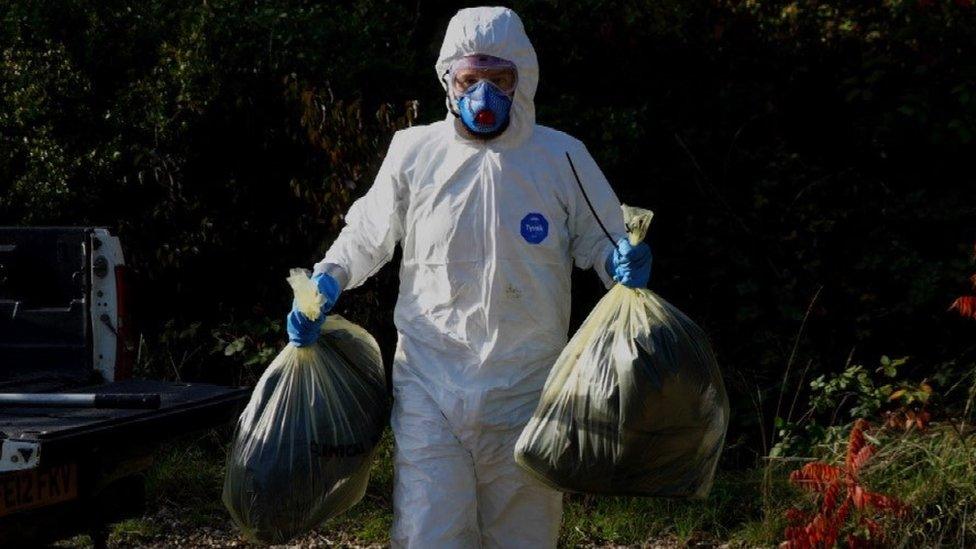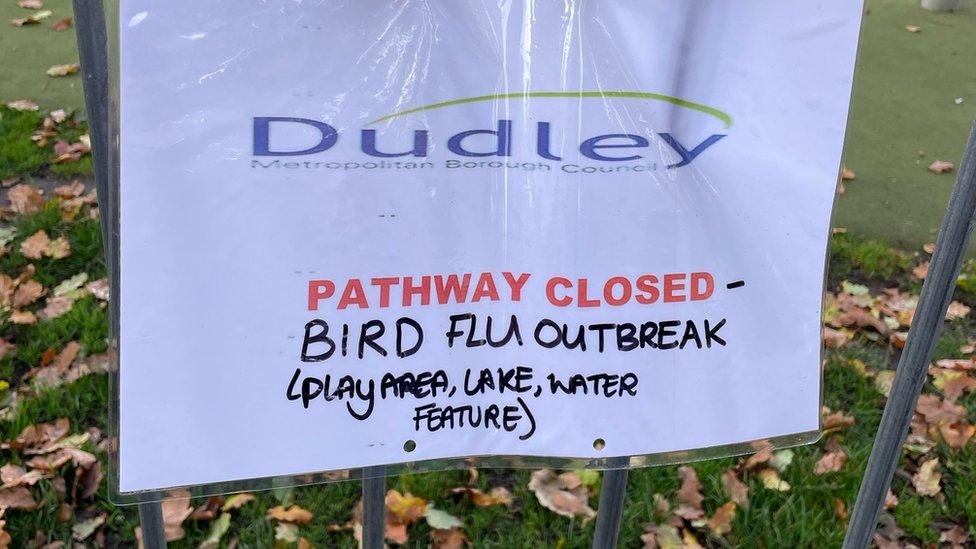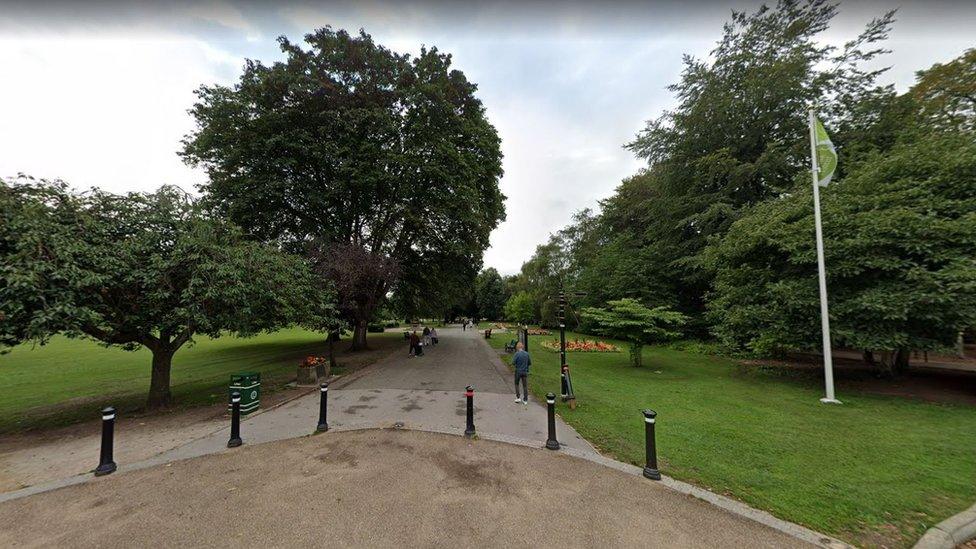Bird flu cases confirmed in Worcester
- Published

The UK Health Security Agency is urging people not to touch any sick or dead wild birds
Cases of avian flu among wild bird populations in Worcester have been confirmed by the government.
It follows the deaths of wildfowl including swans at the lakes around County Hall and Nunnery Wood, the UK Health Security Agency (UKHSA) said.
People are being urged not to touch any sick or dead wild birds and to report sightings to officials.
Strict biosecurity measures have been introduced by the government amid the country's largest ever outbreak.
Across the UK, 190 cases have been confirmed since late October 2021, with more than 30 confirmed since the beginning of this month.
Liz Altay, interim director of Public Health at Worcestershire County Council, said: "All bird keepers whether you have pet birds, commercial flocks or just a few birds in a backyard flock) must keep a close watch on them for signs of disease, and take all necessary precautions to stop spread of disease to the flock. If you have any concerns about the health of your birds, seek prompt advice from your vet."
Worcestershire County Council and UKHSA West Midlands are liaising with the Department for the Environment, Food and Rural Affairs (Defra) and the Animal and Plant Health Agency (APHA) to manage the situation and reduce the risk to other birds, wildlife and pets.
Sarah Smith, UKHSA's West Midlands health protection consultant, said: "The A(H5N1) strain is currently the most common strain of bird flu in this country and is highly pathogenic to other birds.
"The risk to the public from avian flu remains very low, however it is possible for humans to catch the virus, so it is vital that people do not touch any sick or dead birds, or have contact with their droppings, eggs or bedding, which may also be contaminated."

Follow BBC West Midlands on Facebook, external, Twitter, external and Instagram, external. Send your story ideas to: newsonline.westmidlands@bbc.co.uk, external
Related topics
- Published20 October 2022

- Published17 October 2022

- Published5 October 2022
